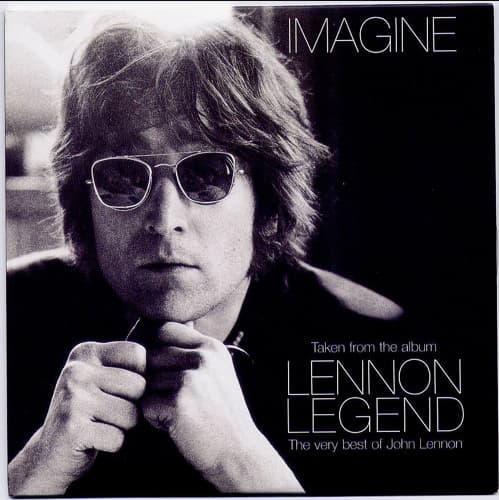
“Imagine”: A Timeless Anthem of Peace by John Lennon
In the panorama of music that shapes societal narratives, few songs have resonated through the decades quite as profoundly as John Lennon’s “Imagine”. Released in 1971, this track not only showcases Lennon’s idealistic vision but has also etched its name as an anthem for peace across generations. The song’s plea for a world unified, devoid of materialistic binds, and free from the divides of nations and religion, touches on universality that remains poignant today.
“Imagine” was birthed in the serene setting of Lennon’s home studio at Tittenhurst Park, England, and saw its completion in New York City with the help of co-producers Yoko Ono and Phil Spector. Its lyrics, inspired significantly by Ono, for which she was rightfully credited in 2017, invite listeners to dream of a peaceful existence that transcends established societal boundaries.
Upon its release in the United States in October 1971, “Imagine” quickly ascended to number three on the Billboard Hot 100. It wasn’t released as a single in the UK until 1975, where it reached number six on the UK Singles Chart and later soared to the top following Lennon’s tragic death in 1980. The song’s influence was formidable, recognized by BMI as one of the 100 most performed songs of the 20th century. It earned numerous accolades, including a place in the Grammy Hall of Fame and an induction into the Rock and Roll Hall of Fame’s “500 Songs that Shaped Rock and Roll”.
The cultural impact of “Imagine” extends far beyond chart success and awards. It has become a staple in global events, resonating particularly during moments of reflection and change. Notably, since 2005, it has been played just before the New Year’s Times Square Ball drop in New York City, symbolizing a collective hope for the future. Its message of peace and unity was also prominently featured in the opening ceremonies of the 2012 and 2022 Olympics, reaffirming its relevance and inspirational power.
Despite its widespread acclaim, “Imagine” has not been without controversy, particularly among conservative circles, due to its lyrical invitation to envision a world without religion. This aspect of the song has sparked debate and discussion, highlighting its ability to challenge prevailing ideologies and inspire dialogue.
With over 1.7 million copies sold in the UK alone and covered by more than 200 artists including icons like Madonna, Stevie Wonder, and Lady Gaga, “Imagine” remains a significant, unifying force in music. Its enduring appeal lies in its ability to connect with the universal desire for peace and a better world. As it continues to influence artists and audiences alike, John Lennon’s “Imagine” stands as a testament to the power of music as a catalyst for social change and a beacon of hope for future generations.